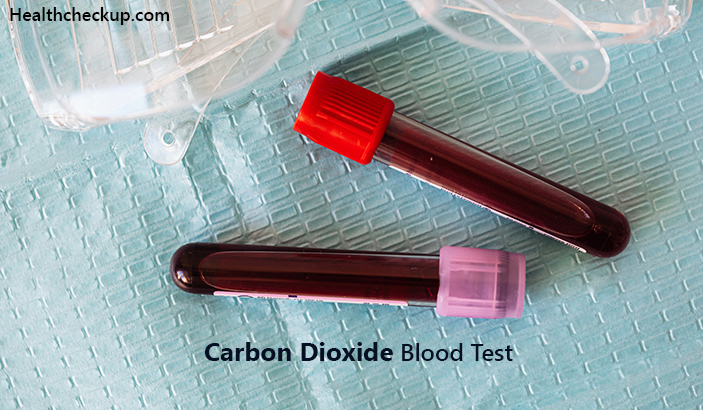A carbon dioxide blood test is a part of the electrolyte panel test. It is advised by the doctor based on your symptoms. The symptoms of abnormal carbon dioxide levels are weakness, fatigue, and vomiting. High and low levels of carbon dioxide in the blood may be due to various medical conditions.
What Is Carbon Dioxide Blood Test?
A carbon dioxide blood test is done to determine the amount of total carbon dioxide in the blood. It may be present in the form of CO2, carbonic acid, and bicarbonate. Bicarbonate forms the largest share of total carbon dioxide in the blood. This test comes under the category of electrolyte panel test. The electrolyte panel test is done to check the electrolyte status of the blood.
Why Is Carbon Dioxide Blood Test Done?
Carbon dioxide forms the acidic component of blood and maintains the pH of the blood. Too high or too low total carbon dioxide levels indicates an underlying medical condition. This test is done if the patient experiences symptoms due to electrolyte imbalance. The symptoms include;
- Fatigue
- Weakness
- Vomiting
- Difficulty breathing
- Feeling of faintness
The doctor may advise you on a carbon dioxide test to determine the pH status.
How Is Carbon Dioxide In The Blood Tested?
The concentration of carbonic acid and carbon dioxide is small. Thus, this test is a measure of bicarbonate anion. This test should not be confused for determining PCO2. The test is done by taking the blood sample. The blood sample can be obtained either from a vein or an artery. In case the blood is obtained from an artery, sampling is generally done from the brachial or femoral artery. Following steps are followed to obtain a blood sample from veins;
- Clean the area with an antiseptic solution.
- Wrap elastic band to accumulate blood in the vein.
- Insert the needle gently and collect blood.
- Remove the needle and unwrap the elastic band.
- Put a cotton gauze on the site of puncture and press to stop bleeding.
Carbon Dioxide Blood Test Low
The normal range of carbon dioxide in the blood is 23-29 mmol/l. Any levels below this level indicate a low carbon dioxide level. It may indicate an underlying medical condition. However, it should be noted that not all cases of low carbon dioxide levels indicate disease. The level of carbon dioxide may also vary due to other factors such as medications.
Symptoms Of Low Co2
Following are the symptoms of low carbon dioxide levels;
- Muscle twitching
- Nausea
- Numbness
- Muscle spasm
- Tremors in hand
Causes Of Low CO2
A low level of carbon dioxide results in metabolic acidosis and respiratory alkalosis. In metabolic acidosis, the pH is less than 7.35. In respiratory alkalosis, the pH is higher than 7.45.
Causes Of Metabolic Acidosis
- Cancer
- Seizures
- Lactic acidosis
- Diarrhea
- Kidney problem
- Prolong shortage of oxygen due to underlying medical condition
Causes Of Respiratory Alkalosis
- Stress and anxiety
- Hyperventilation
Carbon Dioxide Blood Test High
The level of carbon dioxide above the normal indicates a higher carbon dioxide level. It may be due to various underlying conditions. Patients with high carbon dioxide levels may experience various symptoms.
Symptoms Of High CO2
Following are the symptoms experienced by the patient with high carbon dioxide levels;
- Muscle weakness
- Fatigue
- Nausea
- Feeling of fainting
- Disoriented
- Drowsiness
- Headache
Causes Of High Co2
A high level of carbon dioxide results in metabolic alkalosis and respiratory acidosis. In metabolic alkalosis with a high level of carbon dioxide, the pH is less than 7.45. In respiratory acidosis, the level of pH is less than 7.35.
Causes Of Metabolic Alkalosis
- Hypoventilation
- Chronic vomiting
Causes Of Respiratory Acidosis
- Pulmonary hypertension
- Lung diseases such as fibrosis, cancer, or infection.
- Exposure to toxic chemicals
- Tuberculosis or pneumonia
Carbon Dioxide Blood Test Normal Range
The normal level of carbon dioxide in the blood is 23 to 29 mmol/l. Along with the level of carbon dioxide, the pH of the blood is also measured. The normal range of pH is between 7.35 to 7.45.
Tips To Prevent Abnormal Levels Of CO2
Following are some of the measures that may help to prevent the abnormal levels of carbon dioxide;
- Maintaining a healthy weight
- Perform routine exercise
- Avoid smoking
- Avoid exposure to toxic chemicals
- Take appropriate treatment of lung and kidney disorders.
Conclusion
A carbon dioxide blood test is an important test to determine the status of overall health. Various medical conditions may cause abnormal carbon dioxide levels. Various preventive measures should be followed to avoid abnormal carbon dioxide levels.

Rohit Jain is an IPR Specialist and Medical Content Writing Expert. For over a decade, he has written several articles in the areas of female infertility, Erectile dysfunction, hemangioma, cervical cancer, monoclonal gammopathy of undetermined significance, mononucleosis, mitral valve disorder, nerve sheath tumor, shin splints, mild cognitive impairment, cellulitis, brain metastases, atelectasis, MCAD deficiency, lymphoma, sepsis, cardiac rehabilitation and metabolic disorder among others.









